After a Texas car accident, fault can be determined by a formal trier of fact like a judge or jury or by an informal trier of fact like an insurance adjuster. In either case, the determination is based on evidence like police reports, witness statements, and sometimes even expert reports.
Your Dallas car accident lawyer will begin to investigate as soon as possible– the evidence gathered right after the accident can be the most important. Most cases end in a car accident settlement, but your lawyer will prepare a case that will stand up in trial if necessary
Do not discuss your accident with anyone except your lawyer
You should not talk about the accident with anyone except your attorney. The other driver’s insurance company could claim that you were completely or partially at fault for your car accident to reduce the amount that they pay.
Innocent statements like a polite apology can be used against you later. Even telling the adjuster that you are fine while giving a recorded statement could undermine your injury claim. Instead, the safest way to proceed is to refer all calls to your lawyer.
Evidence used to determine fault
Exhibits and testimony form the body of evidence in a personal injury case. A helpful start is to request the police report after your car accident. Other evidence that can help include:
- Photographs from the accident
- Names and contact information of witnesses
- Notes about what happened, written at the time of the accident
In serious car or truck accidents, the insurance company or parties may hire expert witnesses to prove fault. An accident reconstructionist may prepare a report explaining what likely occurred. A city engineer may be enlisted to verify traffic light patterns. A mechanic might be needed to explain whether a vehicle was functioning correctly. Your lawyer will determine whether specialists like this will be needed to explain issues affecting liability.
Presenting evidence of fault
If evidence of the other driver’s fault is overwhelming, the insurance company may settle. If there is some dispute, your lawyer may create a binder or some other presentation of the evidence to demonstrate the strength of your case. If there isn’t a voluntary settlement, your case will proceed in court, and you will have the chance to present the evidence to the judge or jury.
If the other driver claims you were partly to blame for the crash, the judge or jury will decide how much blame each party bears. If you are found to bear 51% or more of the fault, you will not be allowed to recover compensation. However, if you are found to bear a lesser amount, your damages will be reduced proportionally. So, if you are awarded $100,000 in damages but are found to bear 20% of the blame, you may recover $80,000.
Maximize compensation for your car accident injuries
If you have been injured in an accident, recovering compensation can help you bear the burden of medical bills, lost wages, and other financial and non-financial losses associated with the crash. Choose a Dallas personal injury lawyer who is committed to holding at-fault parties responsible for their actions. Call Angel Reyes & Associates today to schedule a free, no-obligation consultation and learn more about how we can help.
